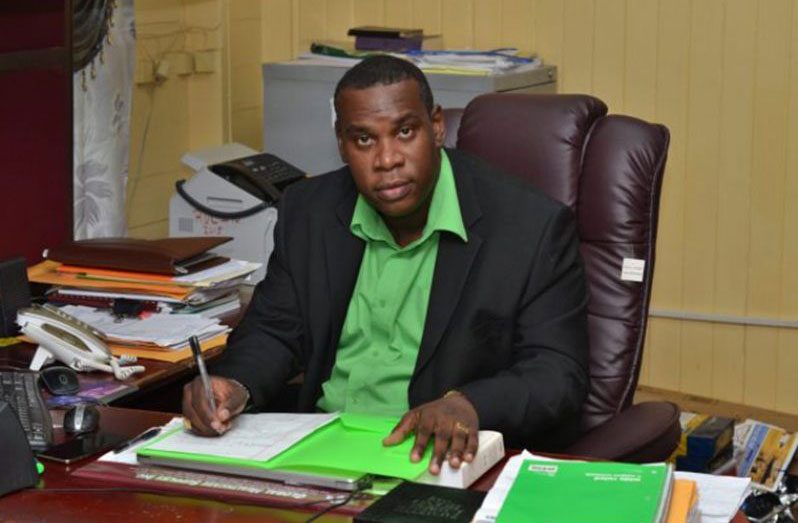-Region 10 prepares for May/June rains
IN anticipation of the May/June rainy season, the Regional Disaster Preparedness Committee of Region Ten has started to implement a number of systems to mitigate the effects of possible flooding in vulnerable communities across the region.
Speaking with the Guyana Chronicle on Sunday, Deron Adams, Regional Chairman and head of the committee, said that information channels have been set up between the committee and the executive members of the various Community Development Councils (CDCs) and the Civil Defence Commission (CDC).
“We have been in communication and in contact with all of the communities that were hit by the floods last year; we have already been making contact with the representatives in those communities [and] they are reporting to us daily and this information is being filtered to the Civil Defence Commission,” Adams said.
Additionally, a report identifying several capital works, such as the clearing of several outfalls in anticipation of the rainy season, has already been prepared.
“Since the last flooding, we would have submitted a report to the Ministry of Agriculture through the National Drainage and Irrigation Authority [NDIA] for a number of critical capital works that should be undertaken in anticipation of the next rainy season. Projects that we would have highlighted, were the clearing of a number of outfalls,” the Regional Chairman said.
Adams explained that the committee is continually working to ensure that the disaster of last year does not repeat itself. He said the region will be better prepared this year to handle the after-effects of the torrential rainfall.

“We don’t intend to be caught off-guard this time around. Last year we were the first region to put a disaster preparedness committee in place. We have already had maps identifying hotspots and we intend to put systems in place that residents are given the correct information and advised accordingly.
“The community development councils have been submitting their work programmes. I have signed off on those work programmes and now they are at the NDIA, waiting approval.”
Once there is approval, the CDC will move ahead with the clearing of a number of drains.
Additionally, in the riverine communities like Kwakwani, some residents have been advised to move to higher ground as the rainy season draws nearer.
Adams disclosed that only a handful of people have since relocated. However, the authorities will continue to issue warning to those residents who have not yet relocated.
“For many years now, consecutive governments would have advised the people at the Water Front area in Kwakwani that they should consider moving to higher ground. Some of them moved, a few of them remain and so the call is once again for them to move to higher ground.”
In May 2021, the regional authorities in the Upper Demerara-Berbice region had declared that the community of Kwakwani was in a “severe state” since floodwaters had risen above 15 feet, completely covering several houses.
Other communities in the region such as Rockstone, Lamp Island Hururu, Central Coomacka, Speightland, Malali, Aroaima, Muritaro were severely affected.
Later in June, President Dr Irfaan Ali had declared Guyana to be in a state of disaster by virtue of the ongoing floods. At the time, a total of 28,228 households were affected by flooding countrywide.




.png)









